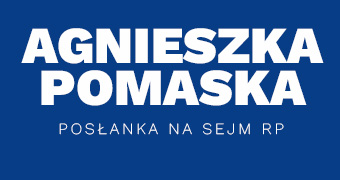Today, the European Commission is proposing improvements to the EU rules that protect children in the context of cross-border parental responsibility disputes related to custody, access rights and child abduction.
The new rules will speed up the legal and administrative proceedings and ensure that the child’s best interest is always taken into account.
When families have disputes or international couples separate, cross-border judicial cooperation is crucial to give children a secure legal environment to maintain relations with both parents (and guardians) who may live in different European countries.
First Vice-President Timmermans said: „There are few things more traumatic for a child than seeing disputes between their parents. When these disputes end in legal proceedings with a cross-border dimension, the EU has a responsibility to ensure that they are settled as smoothly and efficiently as possible. The simplified new rules we have adopted will bring benefits for families and children. They will gain from reduced timelines for settling proceedings and will avoid the heavy financial costs often linked to such procedures. We need to make sure that different legal regimes are compatible to minimise complications, delays, distress and uncertainty. ”
Vĕra Jourová, EU Commissioner for Justice, Consumers and Gender Equality said: „Children are at the heart of this reform. The separation of their parents is difficult enough. The children concerned deserve judicial proceedings that clarify their situation as quickly as possible and take into account their best interest . We propose today to upgrade the existing rules on the basis of practical experience during the past 10 years. The focus of this reform is clear: we need to speed up the cross-border cases. Time is of the essence for children’s welfare, so we need these new rules quickly.”
The updated rules are based on the assessment of the existing rules and aim to remedy the identified shortcomings. In particular, a key objective is to ensure quicker overall procedures given that time is of the essence in order to protect the best interests of the child in these cross-border parental responsibility disputes. More specifically, the following targeted changes are proposed:
More efficient procedures to tackle cross-border parental child abduction
The deadlines applied to different stages of the child return procedure will be limited to a maximum period of 18 weeks (maximum six weeks for the receiving Central Authority to process the application, six weeks for the first instance court, and six weeks for the appellate court). A decision on return will be appealable only once, and the judge will have to consider whether a judgment ordering the return of the child should be enforceable in the meantime.
In full respect of the structure of the national legal systems, it will be ensured that the parental child abduction cases are heard by a limited number of courts so that judges develop the necessary expertise.
Ensuring the child is heard
A child who is capable of forming his or her own views will be guaranteed an opportunity to express views in all proceedings concerning their case. This will apply in particular to proceedings on custody and access, and on the return of children if they were abducted by one of their parents.
Rapid enforcement of decisions in other Member States
Currently, parents often need to apply a decision on custody or access to be enforced in another Member State. With the new rules, the exequatur, an intermediary procedure required for the enforcement of a judgment in another country, will be abolished. Where enforcement has not yet occurred after six weeks, the court will inform the requesting Central Authority in the Member State of origin or directly the applicant about the reasons for the lack of timely enforcement. In addition, in order to speed up enforcement, the court that issued the judgment will be able to declare it provisionally enforceable.
Improving cooperation between Member States’ authorities
The good cooperation between Central Authorities in handling of child cases is an indispensable prerequisite for mutual trust between the authorities of different Member States. The new rules will promote better cooperation between Central Authorities as they are the direct point of contact for parents and play a key role in supporting the judges in applying the rules. Also, child welfare authorities will be better integrated in cross-border cooperation.
These new rules will bring benefits to families and children. They will gain from reduced timelines for solving proceedings and will avoid the heavy costs usually linked to such procedures. For example, in case of return proceedings, parents will have clearer rules and will be encouraged to engage in mediation, saving possible litigation costs which represent € 2,200 on average for the entire proceedings. Abolishing exequatur proceedings will help save from around € 1,100 to 4,000 per case in some Member States. In addition, speedier enforcement will allow families to save money for the work of a specialised lawyer estimated, depending on the Member State, at between € 1,000 and 4,000 per every additional 10 working hours.
Next steps
The proposal adopted today by the Commission will be sent to the Council of the EU. The decision in the Council is taken at unanimity, under the special legislative procedure for judicial cooperation in family matters (Article 81(3) of the Treaty on the Functioning of the European Union). The European Parliament will be consulted on the proposal.
Background
The Brussels IIa Regulation is the cornerstone of EU judicial cooperation in matrimonial matters and matters of parental responsibility, including custody, access rights and child abduction. It serves to settle conflicts of jurisdiction between Member States and facilitates the free circulation of judgments in the EU by laying down provisions on their recognition and enforcement in another Member State. In cases of cross-border parental child abduction, it sets out a procedure for the return of the child to the Member State of his or her habitual residence. The Regulation has entered into application on 1 March 2005 and it is applied in all Member States except Denmark.
Cross-border disputes on family matters have increased in the EU in line with the rising number of international families, which is now estimated at 16 million and increasing. The number of international divorces now reaches some 140,000 per year in the EU. The number of children born to unmarried international couples has also increased; and there are annually up to 1,800 cases of parental child abduction within the EU.
To evaluate the effectiveness of the rules, the Commission adopted a report on how the Regulation has functioned in practice in April 2014 and carried out a public consultation consulting experts to identify the changes needed to improve the existing rules.
source: europa.eu

